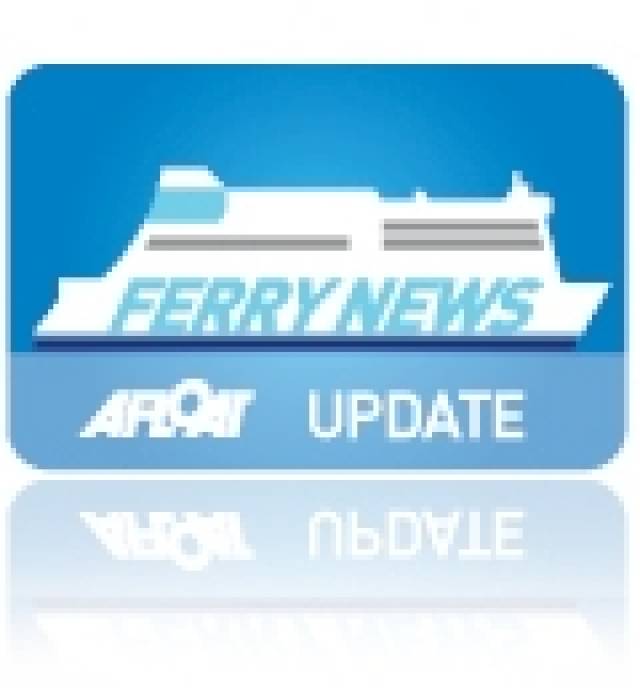The German built 41,700grt vessel stays at the port for an 8 -hour turn-around before making the seasons inaugural outbound sailing to France at 16.00hrs.
Pont-Aven can arguably claim to be the most luxurious 'cruiseferry' operating to Ireland as the vessel has a small number of luxury cabins incorporating balconies and uniquely to feature a swimming pool.
The swimming pool and leisure area can be covered over by a retractable roof. The option of the 'open-air' swimming pool may prove more popular with her 2,400 passengers as the cruiseferry also operates on a triangular route roster between Roscoff-Plymouth and Plymouth-Santander
Pont-Aven also operates a second Spanish route, Santander-Portsmouth in tandem with Cap Finistère. The 32,728grt cruiseferry last week opened a new route for Brittany Ferries also from Portsmouth to Bilbao, for details click here.
The Bibao route had closed in September when P&O Ferries withdrew from the service which since 1993 has been run by Pride of Bilbao. The 37,583grt was on charter from the Irish Continental Group (ICG) the parent company of Irish Ferries until its sale late last year to a Baltic Sea ferry operator between Helsinki-(Tallinn)-St.Petersburg, for more information click here.



























































